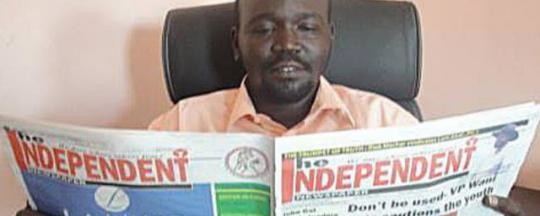The leader of a South Sudan opposition party said smaller political parties have a role to play both in bringing peace to South Sudan and governing it, but warned that they are being shut out of the process.
“We have so many tools to use to bring peace in South Sudan,” said Peter Mayen, the chairperson of the People’s Liberal Party. “Our ways are always non-violent and whoever is courageous enough will follow PLP in leading the way to South Sudanese peace. On the 18 [August], if they do not sign the peace deal, we will work for peace at all costs.”
Mayen complained that Intergovernmental Authority on Development’s current proposed peace deal does not address the political needs of the country, saying it empowers the ruling Sudan People’s Liberation Movement party with near-absolute decision making authority.
The document proposes a power-sharing deal that gives the current national executive from the SPLM 53 percent of ministerial positions. An additional 33 percent go to the opposition and another 7 percent to the former detainees – all of whom are current or former SPLM party members. The remaining 7 percent goes to other political parties.
Empowering one party with such power, Mayen argued, means South Sudanese should expect little in terms of progress in improving governance – especially since the SPLM has failed the government during the current regime.
“The SPLM failed to deliver services,” he said. “The same party caused the death of thousands of people. So being given 93 percent – the party will look at it as a reward to stop the war. This tells South Sudanese how un-sensible the SPLM party is becoming because why should you be rewarded with a position in order to stop killing your own people?”
Mayen argued that South Sudan would only move forward under true multiparty democracy.
“Entrusting the country’s affairs into the hands of one party, like in the last 10 years, has showed to us that it led to dictatorship,” he said. “It has led to marginalization, inadequate service delivery and lack of an efficiency policy in terms of resource distribution in the country.”
He called on IGAD to revise the proposed power distribution and give 20 percent to other political parties, who could serve to balance competing interests within the SPLM.
“We have to think about the innocent people who are affected,” Mayen said. “We have to think about the people who are silent without arms, yet they are South Sudanese with absolute right to have a say in the country’s politics.”
Photo: Peter Mayen Majongdit



